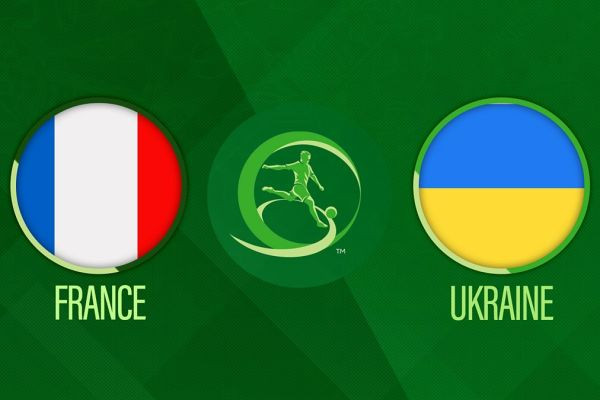The tension is palpable at the Parc des Princes in Paris as France prepares to host Ukraine in a pivotal match for 2026 FIFA World Cup Qualification in UEFA Group D. For the 2022 World Cup finalists, the equation is refreshingly simple: a victory guarantees their direct ticket to the global tournament in North America next summer. For Zbirna, the stakes are equally high—they must secure a positive result to maintain their control over the crucial second-place play-off spot and keep their automatic qualification dreams, however slim, alive.
France, under the command of Didier Deschamps, comes into this contest atop Group D, having established a commanding lead through a dominant, if sometimes stuttering, qualifying campaign (W3 D1). Despite dropping points in a surprising 2-2 draw with Iceland last month, Les Bleus possess immense depth and quality, backed by a formidable unbeaten home record. The Parc des Princes is expected to be a fortress where the two-time World Champions will look to put their qualification beyond doubt with a professional and assertive performance.
Ukraine, coached by Serhiy Rebrov, arrives in Paris as the clear underdog, yet they are far from being a pushover. Zbirna has shown considerable resilience and tactical flexibility, notably rebounding from an early loss to France with two straight wins against Iceland and Azerbaijan in the last international window. They currently occupy the second-place slot, and even a draw against the European giants would be a huge step towards securing their play-off position.
The Tactical Landscape: French Firepower vs. Ukrainian Structure
France: A Wealth of Talent and Attacking Depth
Despite being hampered by injuries to several key attacking players—including Ousmane Dembélé, Désiré Doué, and the withdrawal of Randal Kolo Muani—France still boasts one of the most fearsome squads in world football. The attacking focus will naturally center on Kylian Mbappé, the Real Madrid superstar, whose explosive form makes him the undisputed focal point of the French attack. His pace, clinical finishing, and ability to create chances from nothing will be the primary weapon against a deep-lying Ukrainian defence.
The return of veteran midfielder N'Golo Kanté is a significant boost, providing crucial stability and ball-winning ability that allows the younger, more dynamic players like Eduardo Camavinga (if fit) and Manu Koné to push forward. Deschamps will likely utilize wingers like Michael Olise and Bradley Barcola to stretch the pitch, creating space in the centre for Mbappé or supporting forward Christopher Nkunku to exploit. France's pattern of scoring later in games—a reflection of their patience and ability to wear down opposition defences—suggests they are prepared for a long, difficult night if Ukraine manages to hold them early.
Ukraine: Defensive Organisation and Counter-Attacking Threat
Ukraine's strategy will be built on a foundation of defensive discipline. Serhiy Rebrov is expected to opt for a compact formation, likely a variation of 4-5-1, aiming to crowd the midfield and deny France the quick, short passing opportunities that Mbappé thrives on. Their historical success against France has come from frustrating their star quality, notably the two 1-1 draws in the last World Cup qualifying cycle, which underlines their capacity for resilience.
The loss of key striker Artem Dovbyk to injury is a severe blow, placing the goal-scoring responsibility onto players like veteran Ruslan Malinovskyi. Malinovskyi, despite his club struggles, remains a talisman for the national team, capable of providing a long-range shooting threat and linking up play through midfield. The counter-attack will be Zbirna's best chance of scoring, relying on the pace of their wide players and the hold-up play of a central striker to transition quickly once possession is won. For Ukraine, the key to a shock result lies in an exceptional performance from goalkeeper Anatoliy Trubin and maintaining flawless defensive shape for the full 90 minutes.
Head-to-Head History (H2H): A Past of Playoff Drama
The historical rivalry between France and Ukraine is marked by competitive, often tight, encounters, most famously their dramatic two-legged World Cup play-off for the 2014 tournament.
| Competition | Matches | France Wins | Draws | Ukraine Wins |
| All Competitions | 13 | 7 | 5 | 1 |
Ukraine's sole victory against Les Bleus came in the first leg of that 2014 play-off, a 2-0 win in Kyiv. However, France delivered a stunning 3-0 reversal in the second leg at the Stade de France, overturning the deficit and qualifying for the finals—a perfect symbol of the two nations' competitive relationship. While France has dominated overall, the five draws, including two 1-1 results in the last cycle, show that Ukraine consistently poses a tough defensive challenge. The most recent meeting, earlier in this 2026 campaign, resulted in a 2-0 victory for France.
Qualification Scenarios and Conclusion
For France, the path is straightforward: win the match, and qualification is sealed. A draw or a loss would simply defer their certainty to the final matchday, but given their lead, automatic qualification remains highly probable.
For Ukraine, a win would sensationally draw them level on points with France, though the goal difference would likely still favour Les Bleus. A draw, however, would keep them securely in the play-off position, setting them up nicely for their final fixture. A loss would be a setback, potentially allowing other teams in the group to catch up in the race for second place.
Prediction: Expect a dominant performance from France in terms of possession and territory. Ukraine's defence will be resolute, frustrating the home crowd and limiting scoring opportunities in the first half. However, the sheer quality and star power of Kylian Mbappé and the fresh legs from the French bench are likely to prove too much in the final third of the game. France is strongly favored to win and seal their direct passage to the 2026 World Cup.








